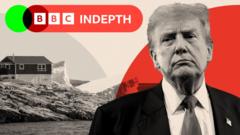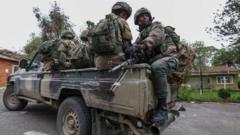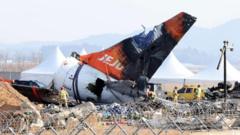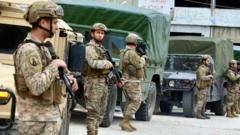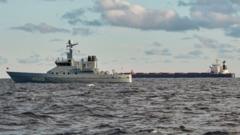A parliamentary inquiry into the recent martial law declaration by South Korean President Yoon Suk Yeol has exposed significant mismanagement within the military, raising concerns about its capabilities and preparedness.
South Korean Military Faces Backlash Amid Martial Law Crisis

South Korean Military Faces Backlash Amid Martial Law Crisis
Amid rising political tensions, President Yoon Suk Yeol's controversial martial law declaration has left the military's image in disarray.
South Korea’s military, long seen as a disciplined and modern force after working to recover its image from gruesome pasts of the 1970s and ’80s, is now grappling with renewed scrutiny. The turmoil erupted in the wake of a parliamentary hearing on Thursday, where Army chief, General Park An-su, faced harsh questioning regarding the botched implementation of martial law just days earlier.
General Park’s testimony revealed a staggering lack of coordination and readiness within the ranks. “We were not militarily prepared because it was put into action in such a hurry,” he admitted, referencing the hastily executed decree that plunged the nation into political strife. The announcement had sparked a wave of protests, compelling President Yoon to retract the controversial order within six hours.
Lawmakers and the public were left stunned by the general's portrayal of uncertainty amidst national chaos. He claimed ignorance about the decision until it was publicly announced by President Yoon, expressing that he only learned of the order’s details via media coverage. “I had not read it until my signature was requested,” he stated, highlighting a troubling disconnect at the military's helm.
The decree, which sought to curtail “all political activities” and impose media restrictions, has since raised alarms about the military's commitment to democratic processes and rule of law. General Park himself struggled to provide clear directives during the tense moments that followed the declaration, admitting confusion plagued his command efforts.
This tumultuous episode arrives at a pivotal time for South Korean politics, as citizens grapple with the implications of a military they once trusted, now cast into doubt again just as it appeared to have turned a new leaf. The events are indicative of deeper concerns and may reshape the future of military involvement in South Korea's governance.

